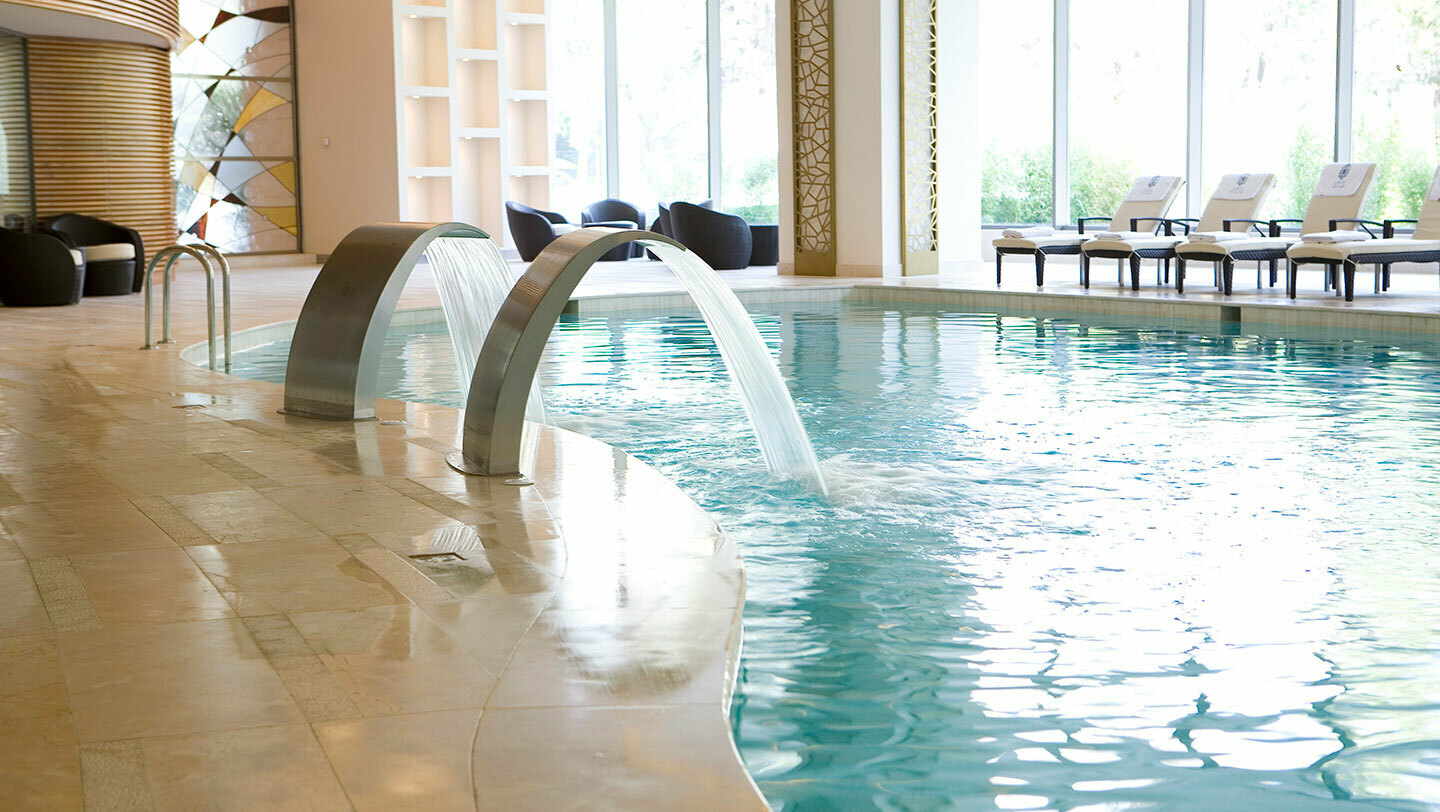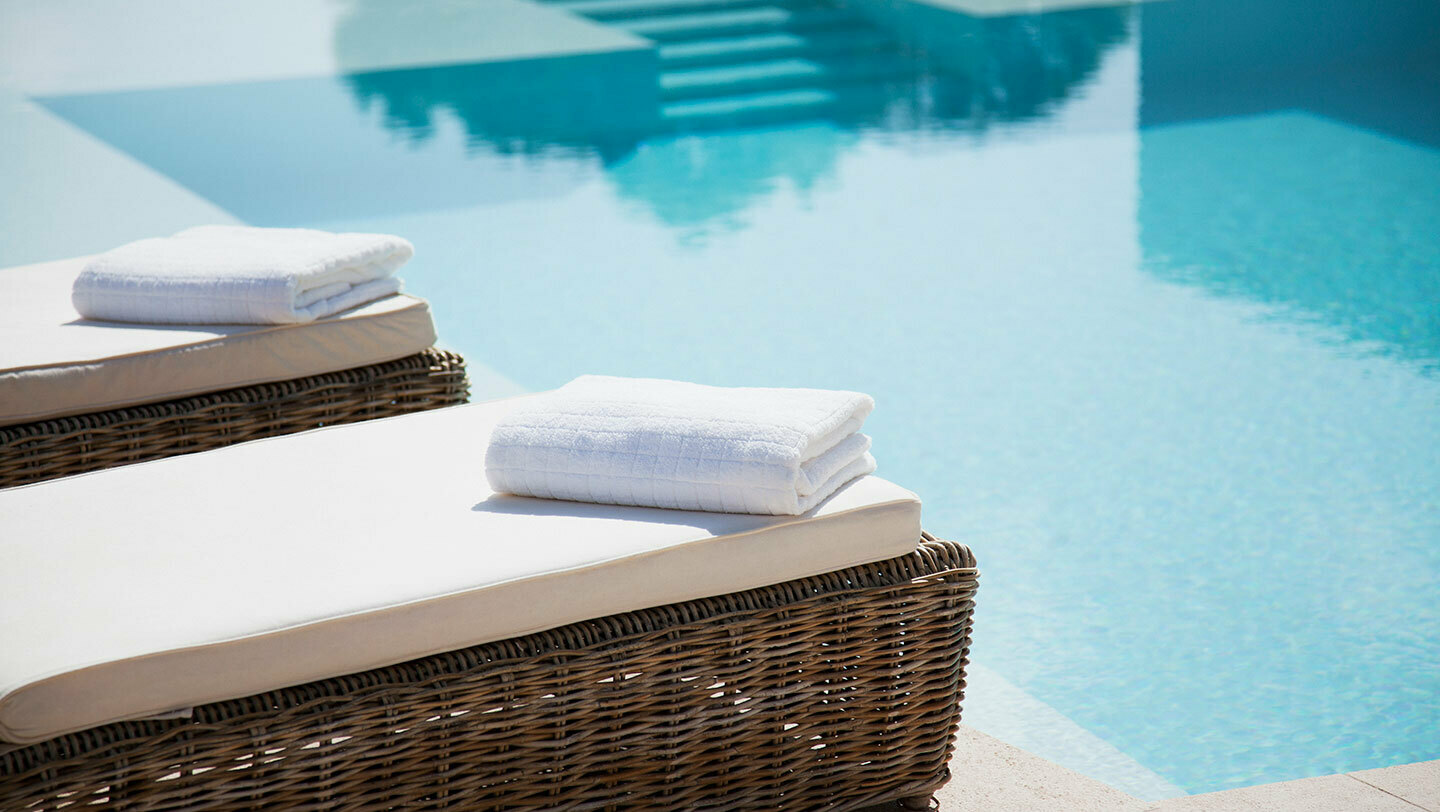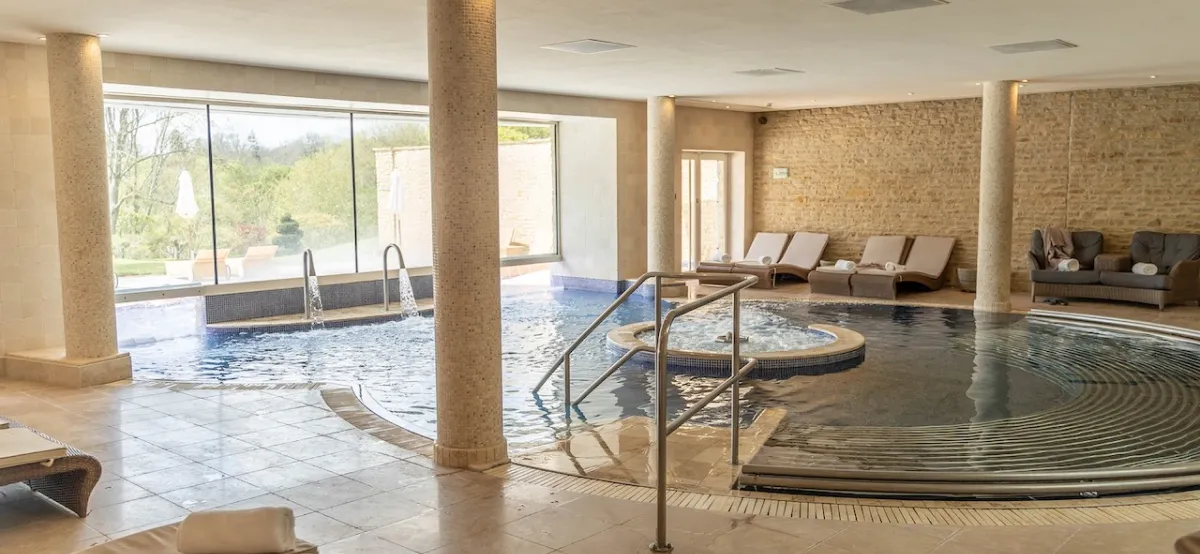Bathing in water is the essence of a traditional spa, but there is a difference between spa pools and spa baths. Our rule of spa is that a bath is liable to be just you -- and maybe your partner; in a pool you can expect to find other people, or have them join you. So wear your cossie!
Spas often have a range of different pools for you to try out. These are the types of pool you are most likely to find in a spa.
Is it a pool, is it a bath? Well, really it depends where it is and how big it is. But as we're The Good Spa Guide, and Jacuzzis in spas tend to be communal, we're classing it as a pool.
A Jacuzzi is a (usually) circular pool/bath, large enough for several people, with a seat-level inside. The water is usually quite hot and bubbles vigorously. Jets of water provide gentle massage your back and shoulders and a bubbling water surface for a more invigorating and luxurious bath.
An outdoor Jacuzzi, or hot tub, is a real treat as you watch the bubbles leak steam into the cold air, while you snuggle down in your hydro-blanket. Think James Bond and champagne.
A whirlpool is similar in many ways to a Jacuzzi, a whirlpool features warm water, underwater jets to massage your body, and constantly moving water - which can be a good form of hydrotherapy.

in an oxygenated or ozone-treated is a treat compared with the average public pool. The water is less chlorinated with chemicals, which means your eyes don't get as sore, nor your skin as dry; your hair won't suffer as much either. It also seems to make it easier to swim for longer.
The water in an oxygenated or ozone treated swimming pool feels fresher and cleaner than you may have been used to and it's so much easier and more pleasant to swim in that you find you swim a lot longer. There is also the advantage that you don't smell of chlorine when you come out.
After a sauna or steam room, Swedes are encouraged to run outside and roll around in the snow. A plunge pool is designed to work on the same principle of boosting your circulation by going from a heat treatment to a quick cold splash. This is said to be a good wellness and mood booster.

Salt-water pools are increasingly popular in spas because they help to balance the chlorine in the water and so reduce the stinging eyes you often get in highly chlorinated pools. They are also a more luxurious experience than swimming in a "regular" pool as the water in salt-water pools feels much softer, and leaves your skin feeling soft rather than dried out. It's a similar sensation to swimming in oxygenated pool water, except there may be a kind of salty residue left around the edge of the pool, or on your skin but it's not unpleasant. The swimming sensation is lovely.
Outdoor, naturally occurring pools usually rich in minerals. There are many well-known hot springs or "geysers" across the world, from New Zealand to Iceland. These can be extraordinary, but they often also smell of sulphur. Bathing in something that smells like bad eggs isn't always the spiritual experience you'd imagined...

Summer Spy
20th May 2013
Spy Likes:
Warmth and sunshine; spas which take me away to another country; fruit infused waters; beach-worth pedicures; deep tissue massages.
Spy Dislikes:
High footfalls; treatments that over promise and under deliver; heavy lunches; loungers drapped in used towels.
